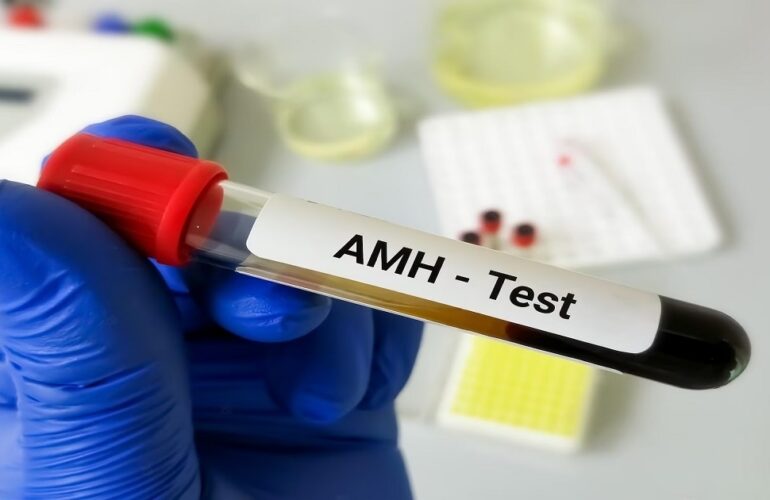What is ICSI IVF?
Assisted reproductive technologies (ART) have revolutionized the field of infertility treatment, and Intracytoplasmic Sperm Injection (ICSI) stands as a remarkable innovation within this domain. ICSI is a cutting-edge fertility treatment that addresses various male infertility issues and enhances the chances of conception for couples facing reproductive challenges.
ICSI Step by Step Procedure
ICSI involves a meticulously orchestrated sequence of steps, performed by skilled embryologists and fertility specialists. Here’s a concise breakdown of the ICSI procedure:
- Egg Retrieval: The journey commences with the administration of hormonal medications to stimulate the ovaries, followed by the retrieval of mature eggs via a minor surgical procedure known as transvaginal aspiration.
- Sperm Collection: A semen sample is collected from the male partner or a sperm donor. The sperm is then processed and prepared, isolating the most viable and motile sperm for the injection.
- Microinjection: Under the guidance of a high-powered microscope, a single selected sperm is carefully injected into the cytoplasm of a mature egg. This delicate maneuver ensures direct fertilization, bypassing any potential barriers that may hinder natural conception.
- Incubation: The fertilized eggs, now referred to as embryos, are incubated in a controlled environment within a laboratory incubator. Embryologists monitor their development closely, observing cell division and growth.
- Embryo Transfer: After a designated incubation period, typically 3 to 5 days, the most robust and healthy embryos are selected for transfer into the female partner’s uterus. This step involves a relatively simple outpatient procedure and is performed using a thin catheter.
- Luteal Phase Support: To optimize the chances of successful implantation, hormone supplementation is often provided to support the uterine lining during the luteal phase of the menstrual cycle.
- Pregnancy Test: Approximately 10 to 14 days after embryo transfer, a blood test determines whether pregnancy has been achieved.
Also Read: ICSI IVF: Process, Success Rate & Benefits
Why is ICSI-IVF Needed?
ICSI-IVF (Intracytoplasmic Sperm Injection combined with In Vitro Fertilization) is a specialized form of IVF designed to address specific male fertility issues. It is typically recommended when:
- Severe Male Infertility: ICSI is a game-changer for couples facing severe male infertility problems, such as low sperm count, poor sperm motility, or abnormal sperm morphology. It allows for successful fertilization even with a limited number of viable sperm.
- Previous IVF Failures: For couples who have undergone conventional IVF without success, ICSI may be recommended to enhance fertilization rates and increase the likelihood of pregnancy.
- Unexplained Infertility: In cases where the cause of infertility remains unexplained despite thorough evaluation, ICSI can overcome potential undetected male factor issues.
Who is ICSI-IVF Recommended For?
ICSI-IVF is an excellent option for couples experiencing male infertility concerns, but it may also be suggested in various other scenarios:
- Advanced Maternal Age: Women over 35 may opt for ICSI-IVF to address age-related fertility challenges, as it offers a higher chance of successful fertilization.
- Previous Fertilization Failures: Individuals who have encountered repeated failed fertilization attempts during conventional IVF may find ICSI-IVF as a more promising approach.
- Sperm Quality Issues: When there are doubts about the quality or functionality of sperm, ICSI can provide a solution, ensuring the sperm successfully penetrates the egg.
- Frozen Sperm: In cases where sperm is cryopreserved (frozen), ICSI can be used to increase the chances of fertilization.
When is ICSI-IVF Done?
ICSI-IVF is typically employed as part of a comprehensive infertility treatment plan. It is scheduled based on various factors, including the woman’s menstrual cycle, ovarian stimulation protocols, and the availability of both partners. Here’s a general timeline:
- Ovarian Stimulation: The process starts with ovarian stimulation, which may involve hormone injections or oral medications. This phase typically lasts for about 8 to 14 days, during which time the growth and maturation of multiple follicles (containing eggs) are monitored closely via ultrasound and hormone level assessments.
- Egg Retrieval: Once the follicles have reached the optimal size, a trigger shot is administered to induce final egg maturation. Approximately 36 hours later, the egg retrieval procedure takes place.
- Sperm Collection: Simultaneously, the male partner or sperm donor provides a semen sample for processing.
- ICSI Procedure: On the same day as egg retrieval, ICSI is performed, ensuring fertilization takes place.
- Embryo Transfer: A few days after fertilization, usually on day 3 or 5, the best embryos are transferred into the woman’s uterus.
- Post-Transfer Care: After the embryo transfer, the woman may receive hormonal support to enhance the chances of implantation.
- Pregnancy Test: A pregnancy test is conducted approximately two weeks after the embryo transfer to determine if conception has occurred.
Why Would I Need ICSI-IVF?
- Male Factor Infertility: ICSI-IVF is primarily recommended when male infertility is a significant obstacle to conception. This could encompass issues such as low sperm count, poor sperm motility, or abnormal sperm morphology. In cases where the male partner’s sperm cannot fertilize the egg naturally, ICSI comes to the rescue by directly injecting a single, healthy sperm into the egg.
- Previous IVF Failures: If a couple has undergone conventional In Vitro Fertilization (IVF) without success, ICSI-IVF may be advised. ICSI offers a higher chance of fertilization, particularly when fertilization rates have been low in previous attempts.
- Unexplained Infertility: In some cases, despite comprehensive fertility evaluations, the exact cause of infertility remains elusive. ICSI can overcome potential undetected male factor issues, increasing the chances of fertilization and pregnancy.
- Sperm Quality Concerns: When there are doubts about the quality or functionality of sperm, ICSI provides a solution. It ensures that a viable sperm is directly introduced into the egg, circumventing any potential barriers that might hinder natural fertilization.
- Frozen Sperm: If sperm has been cryopreserved (frozen) due to medical reasons or for future use, ICSI can be employed to optimize the chances of fertilization when it is needed.
How Does ICSI-IVF Work?
ICSI-IVF is a multi-step process that integrates the principles of IVF with the precision of Intracytoplasmic Sperm Injection. Here’s an overview of the key stages:
Before ICSI-IVF:
- Initial Consultation: The journey begins with an initial consultation with a fertility specialist. During this consultation, medical histories are reviewed, and diagnostic tests are conducted to determine the underlying causes of infertility.
- Ovarian Stimulation: In preparation for ICSI-IVF, the female partner typically undergoes ovarian stimulation using hormone medications. This stimulates the ovaries to produce multiple eggs, increasing the chances of a successful fertilization.
During ICSI-IVF:
- Egg Retrieval: When the ovarian follicles containing mature eggs are deemed ready, a minor surgical procedure known as transvaginal aspiration is performed to retrieve the eggs.
- Sperm Collection: Simultaneously, the male partner or a sperm donor provides a semen sample, which is then processed in the laboratory. The most viable and motile sperm are isolated and prepared for injection.
- Microinjection (ICSI): Under the guidance of a high-powered microscope, a single, carefully selected sperm is injected directly into the cytoplasm of a mature egg. This precise technique ensures fertilization takes place, even in cases with a limited number of healthy sperm.
- Embryo Culture: After microinjection, the fertilized eggs (now embryos) are incubated in a controlled laboratory environment. Embryologists closely monitor their development, observing cell division and growth.
- Embryo Transfer: Once the embryos reach an optimal stage of development, typically on day 3 or 5, the best-quality embryos are selected for transfer into the woman’s uterus. This is a relatively simple outpatient procedure performed using a thin catheter.
After ICSI-IVF:
- Luteal Phase Support: To enhance the chances of successful embryo implantation, hormonal supplementation may be provided to support the uterine lining during the luteal phase of the menstrual cycle.
- Pregnancy Test: Approximately 10 to 14 days after embryo transfer, a blood test is conducted to determine whether pregnancy has been achieved.
Risks Associated with ICSI-IVF
While ICSI-IVF is generally considered safe, it’s important to be aware of potential risks and complications, including:
- Multiple Pregnancies: One of the main risks associated with IVF, including ICSI, is the increased likelihood of multiple pregnancies (twins, triplets, etc.), which can lead to higher health risks for both the mother and the babies.
- Ovarian Hyperstimulation Syndrome (OHSS): Ovarian stimulation can sometimes lead to OHSS, a condition characterized by enlarged ovaries and fluid accumulation in the abdomen. Severe cases are rare but require medical attention.
- Ectopic Pregnancy: Although not unique to ICSI-IVF, the risk of ectopic pregnancy (where the embryo implants outside the uterus) is slightly elevated in assisted reproduction.
- Birth Defects: There has been some debate about whether IVF, including ICSI, may be associated with a slightly increased risk of birth defects. However, current research suggests that the risk is generally low and may be related more to underlying infertility factors than the treatment itself.
- Emotional and Financial Stress: The emotional toll and financial strain of fertility treatments can be substantial and should not be underestimated.
ICSI-IVF Success Rates by Age in India
ICSI-IVF success rates can vary significantly by age, with younger women generally experiencing higher success rates. In India, as in many countries, success rates tend to follow this trend:
- Under 35: Success rates for women under 35 are often the highest, with a good chance of achieving a successful pregnancy through ICSI-IVF.
- 35-37: Success rates for women in their late 30s start to decline but are still relatively favorable.
- 38-40: Success rates further decrease for women in their late 30s to early 40s, but viable outcomes are still possible.
- Over 40: Women over 40 may face more significant challenges, with lower success rates, but success stories are not uncommon.
It’s crucial to remember that individual circumstances, including specific fertility issues and overall health, can also impact success rates.
What are the ICSI-IVF Benefits?
ICSI-IVF offers several notable benefits:
- Overcoming Male Infertility: ICSI addresses male infertility issues effectively by directly injecting a healthy sperm into the egg, regardless of the sperm count or motility.
- Improved Fertilization Rates: ICSI significantly enhances fertilization rates, making it a preferred choice when previous IVF attempts have yielded low fertilization results.
- Tailored Approach: ICSI-IVF can be customized to the specific needs of the couple, offering a more personalized solution to infertility challenges.
- Addressing Unexplained Infertility: For couples with unexplained infertility, ICSI-IVF can provide answers and solutions by ensuring successful fertilization.
- Cryopreserved Sperm Use: ICSI allows the use of frozen sperm, providing flexibility in treatment timing and options for sperm donors.
How Much Does ICSI-IVF Cost in India?
The cost of ICSI-IVF in India can vary widely depending on several factors, including the location of the clinic, the experience of the medical team, the type of facility, and the specific treatments required. On average, the cost of a single cycle of ICSI-IVF in India may range from INR 1,00,000 to INR 2,50,000 (approximately $1,350 to $3,400 USD). It’s important to keep in mind that multiple cycles may be necessary, and additional expenses for medications and diagnostic tests can increase the overall cost.
Also Read: ICSI Treatment in India
Can ICSI-IVF Affect a Baby’s Development?
ICSI-IVF has been extensively studied, and current research suggests that it does not significantly impact the long-term health and development of babies. However, it’s essential to consider a few key points:
- Pre-existing Factors: The health and development of a baby can be influenced by various pre-existing factors, such as the parents’ health, genetics, and lifestyle.
- Risk Assessment: Fertility clinics typically conduct thorough screenings and assessments to minimize any potential risks associated with ICSI-IVF.
- Follow-up Care: After a successful pregnancy, it’s crucial to continue with routine prenatal care and pediatric check-ups to monitor the baby’s growth and development.
- Open Communication: Maintaining open communication with healthcare providers throughout the pregnancy and beyond is essential to address any concerns or issues promptly.
What Can You Expect After IVF Treatment?
After completing an ICSI-IVF cycle, there are several possible outcomes:
- Pregnancy: The most desired outcome is a positive pregnancy test, indicating a successful conception.
- Negative Result: Unfortunately, not all cycles result in pregnancy. In such cases, the next steps and potential adjustments to the treatment plan can be discussed with the fertility specialist.
- Frozen Embryos: If multiple embryos were created during the ICSI-IVF cycle, any remaining healthy embryos can be cryopreserved for future use.
- Emotional Support: The emotional journey of infertility and IVF treatment can be challenging. It’s important to seek emotional support from a counselor or support group if needed.
- Future Planning: Depending on the outcome, you and your healthcare provider can plan for future cycles or explore other fertility treatment options.





